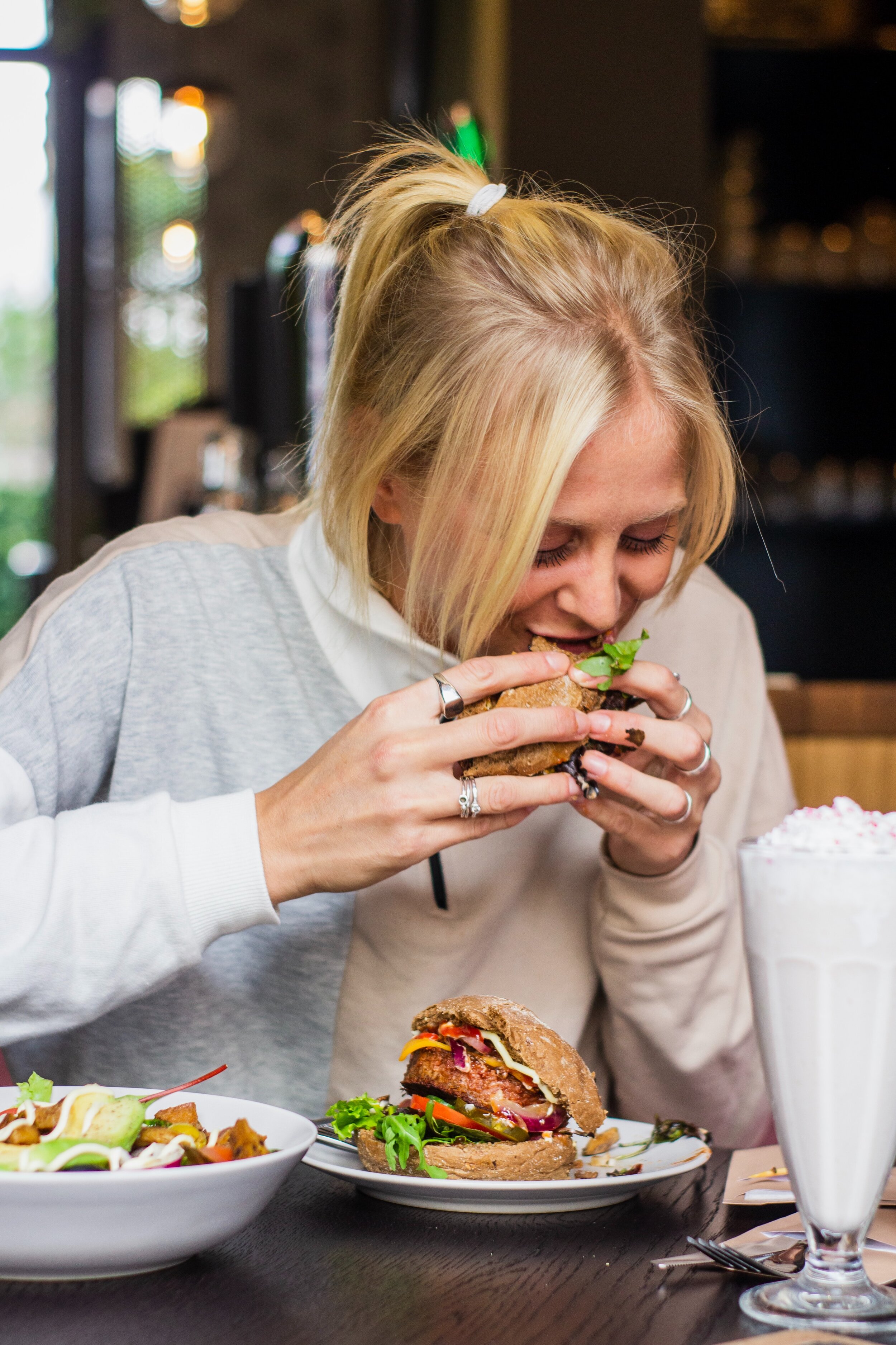Fixing It with Food - Part II: 5 Steps to Exploring Food and Feelings

If you’re someone who experiences this tight connection between emotions and eating, then read part I of Fixing it with Food. Next, check out these five steps that might shed some light on the common lifelong quest towards a healthy relationship with food.
Step 1. Stop Shaming Yourself for Eating Emotionally. Telling yourself that emotional eating is “bad” doesn’t help. In fact, it usually makes matters worse. It feeds into a nasty shame cycle that usually results in more eating. Let’s face it, you wouldn’t be turning to food for comfort if it didn’t work on some level.
Turning to food for comfort is a very smart thing to do, from a biological standpoint. It makes sense that eating is a stress response – store up during times of stress because you don’t know where you’ll find your next meal. Perhaps this urge has helped humans survive for thousands of years.
Instead of giving yourself a massive guilt trip, simply ask yourself if turning to food to help cope with emotions is bringing the soothing and comfort that you desire. In other words, is it hitting the spot?
Get curious, in a non-judgy fashion. Stay objective and neutral as you explore what’s going on. “Huh, that’s interesting. I experienced an urge to eat at the party that never seemed to let up. I wonder what that was about. I wonder if running into my ex-boyfriend played a role.” When you notice the patterns, you have a chance to learn and grow. Just noticing the series of feelings and events is a victory, so praise God and celebrate those little growth spurts in your journey towards food peace.
Step 2: Name common emotions that result in unplanned eating. Emotions are complex and run the gamut. See if you can pinpoint what you’re experiencing when you notice the urge to turn to food. Are you sad? Lonely? Anxious? Stressed? And sometimes it’s all of the above. Like a detective, see if you can identify the emotions that lead you to the kitchen, along with other patterns such as time of day. Is there hunger mixed in there? Or is it purely an emotional urge to eat? If hunger is at play, planning ahead with a nourishing and pleasurable snack might help. If it’s purely an emotionally-triggered event, make note of the emotions that are often at play. You could ask yourself:
How am I feeling?
What do I need?
Step 3: Brainstorm a list of coping tools. If food is your only coping tool for negative emotions then, you have a 100% chance of turning to food to cope with emotions. And this makes emotional eating not just about eating, but self-care. If you have a list of say 5 coping tools, and eating is one of the 5 coping tools on your list, then you have a 1 in 5 chance of turning to food to help cope with that emotion.
Some days, food might be the very best coping tool. And that’s perfectly fine. On other days, there might be other coping tools that sooth and satisfy better. Venting to a friend, taking a walk, soaking in a hot bath, or going to the Lord in prayer – all coping tools that might show up on your list.
Different coping tools help with different emotions. For example, if you’re sad, you may find that your coping tool list for sadness includes: journaling, praying, eating, and having a good long cry. And, if you’re stressed out or overwhelmed, then you may find your coping tool list includes: going for a walk, doing some deep breathing, knitting, making a to-do list, a Netflix binge, eating, or crying out, “Jesus take the wheel!”
See what I mean? Different strategies for different emotions. Eating might be on both of those lists, and might be the easiest fix some days, but other coping tools might be a better fit on other days. This is an invitation to make a list – either a mental list, or a written one, and keep it handy.
Identify those daily self-care tools that bring true peace in your life. Is it when you have gone to bed “on time”? Is it when you have moved your body or perhaps gotten a shower? Do you feel more peace when you have been in the Word? What are those divine daily callings that honor God and you…and help you feel more balanced?
Step 4: Invite God into the mix. God wants to comfort and sooth. He wants us to call on Him when our emotions feel intense. He WANTS to provide the peace that passes all understanding. Invite Him into the mix. Search me and know my heart, says the Psalmist (Psalms 139:23). Consider including prayer on all your lists. And prayer doesn’t have to be the only thing on your list. Take it to the Lord in prayer, while soaking in a hot bath. It doesn’t have to be a self-care strategy OR the Lord. It can be both. Try out all sorts of coping tools that take care of your spiritual, physical, and emotional needs.
Step 5: Test out your coping tools and reassess. There’s only one way to find out if a coping tool works. Dip that big toe into the waters of change and see what happens. Mindfulness is key on this journey. Pay attention as you use that coping tool. Does chatting with a long distance friend help reduce feelings of loneliness? Check in with yourself afterwards. How do you feel now compared to before you picked up the phone?
If a fresh batch of cookies feels like the best way to soothe a negative emotion that day, slow it down. Focus on the taste, texture, and experience of eating those warm delicious chocolaty goodness. Become one with the cookie. Check in with your emotions while you eat. Are those cookies hitting the spot? Do you feel the peace, calm, or happiness that you’re looking for? Are they making you feel better? Or worse? Again, when you can explore these sensations and emotions without negative judgment, then you’ll be freed up to really determine what works best.
Did I mention non-judgment and self-compassion? I know, only like six times. But really, there’s no other path towards a peaceful relationship with food then to turn it over to the Lord while giving yourself a heaping dose of grace on the journey.
Body positive blogs are inspiring, but sometimes it might not be enough. We get that! You might want something more. An expert to walk along side you in your journey towards body respect and food peace. We've got you covered. Sign up for a free "pre-consultation" to see if working with one of our registered dietitians doing faith-based nutrition counseling is right for you.
Dawn is an Associate Professor of Nutrition and a Registered Dietitian Nutritionist. She is a wife and a mother to an amazing 13-year old boy. Dawn enjoys finding creative ways to spread the word that God’s unconditional love can bring healing to every broken relationship, including one with food.





